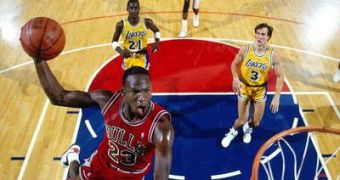A new research carried out by researchers from the Universidad de Castilla la Mancha (UCLM), concluded that sports persons should drink more water so that they can perform at their full capacity.
According to this research, 91% of professional basketball, volleyball, handball and football players are dehydrated when they begin their training sessions.
A professional player need to stay fully hydrated all the time because “dehydration negatively affects sporting performance, even when the level of dehydration is low (such as a 2% loss of body weight through perspiration),” explained UCLM researcher and author of the article, Ricardo Mora-Rodríguez.
On outdoor sports there are a lot of data available but there has been little research conducted on dehydration in indoor sports.
This new research calculates how much body fluids and salts are lost by professional basketball, handball, volleyball and indoor football players, during a game.
Mora-Rodríguez explained that “despite being indoor sports, the pace these professionals play at makes them sweat a great deal.
“In this sense, it is worth highlighting indoor football players, who lose approximately 1.8 liters per hour through perspiration.”
The researchers calculated how much body fluids are replaced by drinking liquids between workouts and also how hydrated player is from the previous day of training.
Out of the four professional men sports team who were studied – Benetton de Treviso basketball and volleyball teams, the Ciudad Real handball team and the Boomerang indoor football team, 43 players re-hydrated and recovered 63% of the fluid they had lost through perspiration.
This means that their dehydration level stayed under 2%, but according to urine tests, 91% of the studied players began the training sessions a bit dehydrated.
As a result, their level of dehydration remained below 2%.
Another important thing was sodium loss, which reached 1.3 grams per person.
The researchers said that “professional indoor sports persons sweat profusely when playing their sports (1.4 litres/hour on average), but their rehydration habits prevent them from reaching levels of dehydration that would affect their sporting performance.”
The main recommendation after this study, who has been published in the European Journal of Sport Science, is to recover body fluids and sodium after every training session.

 14 DAY TRIAL //
14 DAY TRIAL //